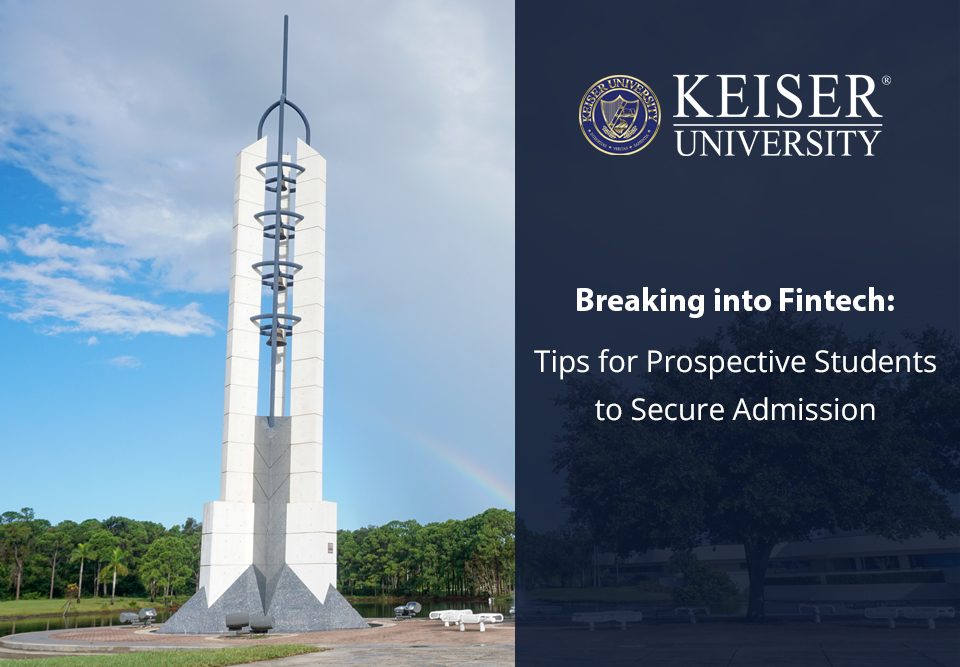Are you fascinated by such emerging technologies as cryptocurrency, blockchain and artificial intelligence (AI)? If so, and if you want to pursue a management or leadership role in this realm, then it might be time to return to school. Specifically, a Master of Science in financial technology (fintech) can provide you with the essential knowledge and skills you need to succeed in this dynamic industry.

Of course, university admissions requirements to fintech programs can vary greatly, and some programs may be extremely competitive. It is important for aspiring fintech education students to understand what the typical admissions process entails and what they can do to maximize their chances of admission.
Fintech College Admissions Process
So, what does the admissions process look like for a fintech graduate program? This can vary from one school and even one program to the next, but there are some basic things you keep in mind as you prepare to apply for graduate school.
Overview of College Admissions
Based on the number of teachers and professors available, as well as the number of credit hours required for each program, graduate schools can determine roughly how many students they can accept into a fintech program each year. This number is carefully calculated to ensure that ideal teacher/student ratios are maintained and that students receive the highest quality education possible.
Securing Admission to a Fintech Program
With this in mind, each school and program writes its own specific admission criteria. In general, anybody applying to a master’s degree program in fintech will need to have a bachelor’s degree from an accredited institution. This degree may need to be related to the fintech field, though this is not always the case.
To secure admission to a fintech program, you will need to carefully research the admission requirements to make sure you meet them. From there, you will need to submit all required application materials by the posted deadline. Once you have received your acceptance letter, you can follow the additional steps provided to begin enrollment in classes.
Understanding the Admission Criteria for Fintech
If you are interested in pursuing a fintech degree, it’s also crucial to understand that the admission requirements can vary based on whether you’re applying to an undergraduate or graduate degree program. Typically, graduate degree programs have stricter admission requirements, though this is not always the case.
Undergraduate Program Requirements
To be accepted into an undergraduate (bachelor’s) degree program in fintech, you will typically need to have a minimum of a high school diploma or equivalent (such as a GED). You might also need to have a minimum high school GPA, though this varies from one program to the next.
You may need to submit additional materials with your application, such as a personal statement or an admission essay.
Graduate Program Requirements
When applying to a graduate (master’s) program in fintech, you can expect to need a minimum of a bachelor’s degree (possibly in a related field). It is also common for fintech programs to require students to have a minimum GPA in their undergraduate programs, though having a lower GPA doesn’t necessarily mean that you won’t get in.
In addition to an application and previous undergraduate degree, you may also need to submit a personal statement and a copy of your resume or curriculum vitae. In some cases, letters of recommendation may also be required.
Highlighting Interest in Finance, Technology or Related Fields
When crafting a resume, personal statement or other application material for your fintech degree program, it’s important to tailor your submission to the finance and technology industries as much as possible. This means highlighting any relevant coursework you’ve done in fintech in the past, as well as any jobs or internships you’ve held that may be related to the field.
Highlighting Relevant Experience in Fintech
Even if you haven’t worked directly in the fintech field before, there’s a good chance you have some relevant experience that can be applied to fintech with a little creativity.
Showcasing Work Experience and Other Initiatives
Perhaps you’ve worked in a role that required you to use artificial intelligence or blockchain technology in the past, or maybe you even completed a project on a similar topic during your undergraduate degree program. If you can find ways to connect your own personal experience to fintech, you may be able to improve your chances of getting accepted into a degree program.
Technical Skills Related to Fintech
Be sure to also highlight any technical skills or training you have in fintech-related areas, such as:
- Machine learning
- AI
- Data analytics
- Blockchain
- Data science
- Software development
Crafting a Compelling Personal Statement
One of the most essential parts of your graduate school application is your personal statement. This is essentially an essay detailing your commitment to the program and why you would be a good fit based on your experience and future aspirations.
Articulating Career Goals and Aspirations in Fintech
Writing a personal statement isn’t always easy, but it helps to start with an outline where you will cover the key points you want to address in your statement. Ideally, you’ll want to select two to three goals or aspirations and cover those in-depth within your personal statement. Be sure to provide specific examples whenever possible to keep things interesting and compelling.
Securing Strong Letters of Recommendation
It is also possible that you will need to submit letters of recommendation from previous employers or professors as part of your graduate school application. If this is the case, there are a few things you should keep in mind as you proceed.
Selecting Recommenders
First, consider who you might want to ask to write you a letter of recommendation. Optimally, you’ll want to ask somebody who has seen firsthand your experience and passion for the fintech field and all things related to it. This could be a previous manager or supervisor, or even an instructor or professor you had in a previous degree program.
Providing Guidance and Context to Ensure Impactful Letters
Once you know who you want to ask for a letter of recommendation, find a way to ask them tactfully. A professionally written email may be appropriate, but asking in person may also be suitable. Ultimately, it just depends on the relationship you have with the person.
When somebody agrees to write a recommendation letter for you, be sure to provide them with the exact details from your application. This will help them better understand what kinds of things they should cover in the letter and what the school is looking for, which will help them craft the most impactful letter possible. Be sure that they are also aware of the deadline for the application so they can plan accordingly. At best, you’ll want to give them at least a few weeks to prepare.
Demonstrating Continued Learning and Growth
Keep in mind, too, that graduate school admissions advisors generally want to see that prospective students are committed to a lifetime of learning and growth in their respective fields. You can demonstrate this in your application materials in several ways.
Participating in Relevant Fintech Experiences
First, make sure you’re taking all opportunities to get involved in fintech both inside and outside of the classroom. This might include joining clubs or other professional organizations, in addition to volunteering or interning in the field when possible. Highlight these examples in your application materials, including your resume or personal statement where relevant.
Highlighting Ongoing Learning Efforts
Be sure to also emphasize your ongoing learning efforts as they relate to the fintech field. What do you do to stay up to date on the latest innovations and trends in the industry? You might want to mention a specific newsletter or industry publication that you follow, and any other sources of ongoing learning efforts that you are pursuing.
Highlighting these efforts will demonstrate to your potential school that you are serious about staying on top of this dynamic industry and that you won’t give up on these efforts once you graduate with your degree.
Ready to Get Started in Fintech?
As you can see, there is a lot to keep in mind when applying to a fintech program. From taking your time to research admission requirements to carefully preparing and submitting application materials, a little preparation and planning goes a long way. With these tips and best practices in mind, you can submit your graduate school applications with confidence and maximize your chances of being accepted into your ideal fintech program.
Still looking for the fintech program that’s right for you? Keiser University’s online Master of Science in Financial Technology delivers the education you need to qualify for leadership opportunities in AI, blockchain and other modern finance technology. With this program available entirely online, you can study on your own terms while tending to your other life obligations.
Learn more about Keiser University’s master of science in fintech by getting in touch with a graduate school admissions counselor. You can also get started with your online application and learn more about our admission requirements here.






 The instructors at Keiser University impacted my life. They believed in my ability to become a great graphic designer, regardless of how I felt about my skills. KU helped to prepare me for the real world and got me to where I am today.
The instructors at Keiser University impacted my life. They believed in my ability to become a great graphic designer, regardless of how I felt about my skills. KU helped to prepare me for the real world and got me to where I am today.
